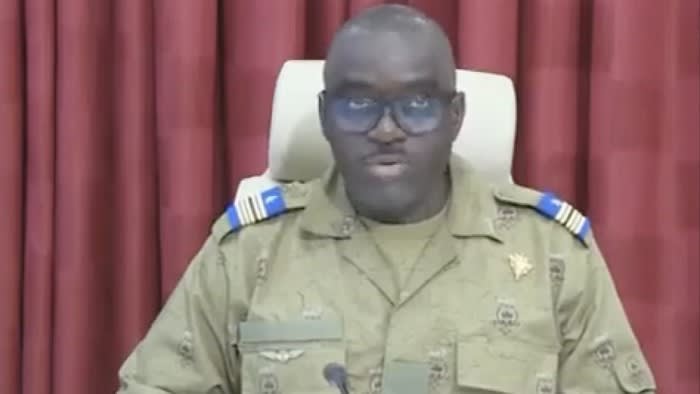Niger’s ruling military junta has ended a military accord that allowed US troops to operate in the west African country, dealing a blow to Washington’s agenda in the region and raising the prospect of increased Russian influence.
Regime spokesman Colonel Amadou Abdramane said in a television broadcast late on Saturday that the 2012 military agreement between the two countries was “illegal and violates all constitutional rules” and that it was “profoundly unfair” to Niger’s people.
Although he stopped short of calling on US troops to depart the country, revoking the defence co-operation agreement in effect ends their mission in the nation of 25mn people.
The announcement comes days after a US delegation, including assistant secretary of state for African affairs Molly Phee and head of the US-Africa Command General Michael Langley, visited the Nigerien capital Niamey for talks with government leaders.
The US maintains more than 1,000 soldiers and civilian employees in Niger and runs two drone bases to monitor affiliates of the Islamist groups Islamic State and al-Qaeda that are active in the Sahel, the semi-arid region south of the Sahara.
Abdramane described the US officials as “condescending” towards the Nigerien government and people.
“Niger regrets the intention of the American delegation to deny the sovereign Nigerien people the right to choose their partners and types of partnerships capable of truly helping them fight against terrorism,” Abdramane said.
“Also, the government of Niger forcefully denounces the condescending attitude, accompanied by the threat of retaliation, from the head of the American delegation towards the Nigerien government and people.”
The junta, known as the National Council for the Safeguard of the Homeland (CNSP), seized power in Niger last July when it deposed the democratically elected president Mohamed Bazoum in a coup led by the head of the presidential guard.
Under the leadership of General Omar Tchiani, Niger has cut ties with former colonial power France, ordering the departure of 1,500 French troops and expelling the French ambassador.
Niger has drawn closer to the military rulers of Mali and Burkina Faso, who have distanced themselves from western powers since toppling leaders in their own countries.
All three nations have threatened to withdraw from the Economic Community of West African States — the regional bloc that originally vowed to invade Niger if the junta did not reverse last July’s coup — and have established closer ties with Moscow.
Mercenaries from Russian paramilitary group Wagner are deployed in Mali, and last year Moscow reopened its embassy in Ouagadougou, Burkina Faso’s capital, after a three-decade absence.
In January, Russia’s defence ministry said Niger had agreed to deepen defence co-operation with Moscow. “The parties noted the importance of developing Russian-Niger relations in the defence sector and agreed to intensify joint actions to stabilise the situation in the region,” the ministry said in a statement.
US state department spokesperson Matthew Miller said the statement made by the Niger junta followed “frank discussions at senior levels in Niamey this week about our concerns with the CNSP’s trajectory” and that Washington remained in touch with the regime.





























